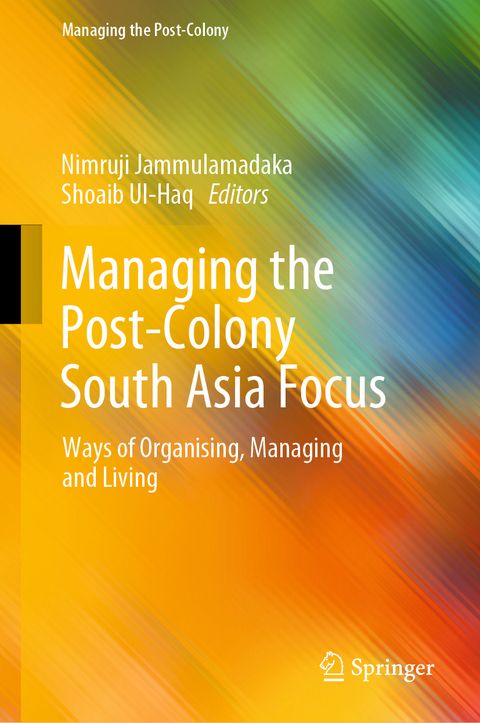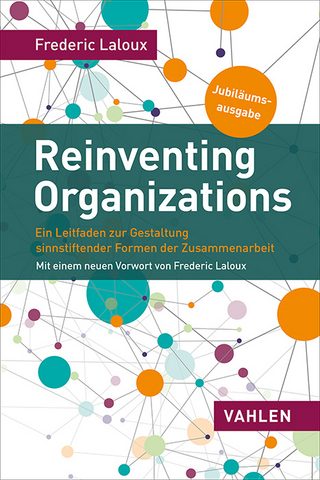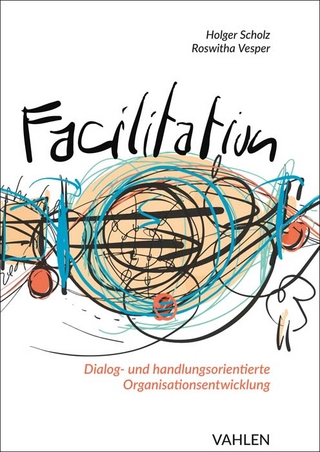
Managing the Post-Colony South Asia Focus
Springer Verlag, Singapore
978-981-19-2987-8 (ISBN)
This edited book on South Asia is committed to a presentation of indigenous understandings and knowledge around the organizing, religion, language and cultural production through the lens of anti, post and de-colonial thought. This book forces the reader to consider not just what we know but how and where we know and can be instrumental in identifying and challenging dominant modes of management knowledge production. The decolonial movement is closely associated with scholars like Walter Mignolo, Anibal Quijano and others who expose how Western rationality and science, emanating from the enlightenmentproject, are being used by colonial powers to consolidate their imperial projects. The authors in this book argue that a potent form of colonization is epistemic in nature. This book series seeks to present cutting-edge, critical, interdisciplinary, and geographically and culturally diverse perspectives on the contemporary nature, experience and theorization of managing and organizing in post-colonial location under conditions of coloniality. These conditions subsume ongoing and new forms of colonisation/imperialism, and complex resistances to them, and lives lived outside them, and may be drawn out and investigated in regard to a multiplicity of different business- and management-related topics.
The power of domination is its ability to silence other ways of knowing, being and doing. Focus on South Asia: Ways of Managing, Organising and Living delivers a profound critique of Western management theory and its universalistic claims. But, it goes much furtherto advance other managements and ways of organising from the peoples and communities of South Asia.
Stella M. Nkomo, University of Pretoria, South Africa
I like very much the orientation and the composition of the volume…you have a) the meaning of management in the West changed after the Industrial revolution and by 1900 became a political issue domestically in the US and before that colonial, as you show in the colonial context of South Asia; b) so the constitution of the settler management as you show with McCaulay, destituted all existing local form of organizing their praxis of living; c) the task now is the reconstitution of the destituted, the pluriversal human (and animals too) self-organization subjected to Western regulations to their own benefit, while materializing their rhetoric of racial destitution (incapable of organizing like us, impossible for them to be like, us we have to teach them civilization, etc.).
Walter Mignolo, William H. Wannamaker Professor of Literature and Romance Studies at Duke University, USA
Very Impressive and Much Needed
Pushkala Prasad, Zankel Chair Professor, Skidmore College.
Nimruji Jammulamadaka is Professor at the IIM Calcutta, India. Her previous books include Indian Business: Notions and Practices of Responsibility (2017) and Governance, Resistance and the Post-colonial State: Management and State Building (2017), Workers and Margins: Grasping Erasures and Possibilities (2019), Business Storytelling and Postcolonialism (in press). A co-editor of the Springer Nature book series Managing the Post-colony, she has also served as Chair of the Critical Management Studies Division at the Academy of Management, USA. Dr. Shoaib Ul Haq holds PhD from Lahore University of Management Sciences (LUMS) and MBA from Leipzig Graduate School of Management, Germany. At Karachi School of Business and Leadership (KSBL), he is the Associate Professor and Chair of the department of Innovation and Digital Economy. Dr. Shoaib has extensive teaching and training experience in Pakistan as well as overseas. Prior to joining KSBL, he served as faculty member at Sejong University, Seoul, South Korea.
Part I: Chapter 1.Introduction to the volume.- Chapter 2. Post-colonial Sri Lanka: Literacy rate and economic disparity.- Chapter 3. Multilingualism and management studies in South Asia.- Chapter 4. Permission to narrate: Colonialism, anti-colonialism, postcolonialism and organizational nostalgia.- Chapter 5. Critical realism, reflexivity and the missing voice of the subaltern: The case of postcolonial Sri Lanka.- Part II: Resistance and Re-existence through Communities as Organising.- Chapter 6. Decoloniality as a dialectic between the joint-ness in the familial and commercial spheres of an indigenous business community.- Chapter 7. Bazaar as microcosm of political society.- Chapter 8.Capitalism’s universalizing project and forms of organizing in microfinance industry: Evidence from South Asia.- Part III: Indigenous Ethics of Managing and Organising. Chapter 9. The role of indigenous knowledge in managing the post-colony: Revisiting contemporary Sri Lankan managerial values.- Chapter 10. Islamic ethics and business in the post-colonial World.- Chapter11. Professionalism and the neoliberal workplace: Competing discourses in South Asia.- Part IV: Resistance and Re-existence in Institutionalised Education and Knowledge.- Chapter 12. Dance as a strategy of resistance and resurgence: Kalavanthulu community.- Chapter13. Language, knowledge and retaining sovereignty, resisting commodification: Case of Men Tsee.
| Erscheinungsdatum | 24.08.2022 |
|---|---|
| Reihe/Serie | Managing the Post-Colony |
| Zusatzinfo | 6 Illustrations, color; 15 Illustrations, black and white; XXVII, 289 p. 21 illus., 6 illus. in color. |
| Verlagsort | Singapore |
| Sprache | englisch |
| Maße | 155 x 235 mm |
| Themenwelt | Wirtschaft ► Betriebswirtschaft / Management ► Planung / Organisation |
| Wirtschaft ► Betriebswirtschaft / Management ► Unternehmensführung / Management | |
| ISBN-10 | 981-19-2987-4 / 9811929874 |
| ISBN-13 | 978-981-19-2987-8 / 9789811929878 |
| Zustand | Neuware |
| Haben Sie eine Frage zum Produkt? |
aus dem Bereich


